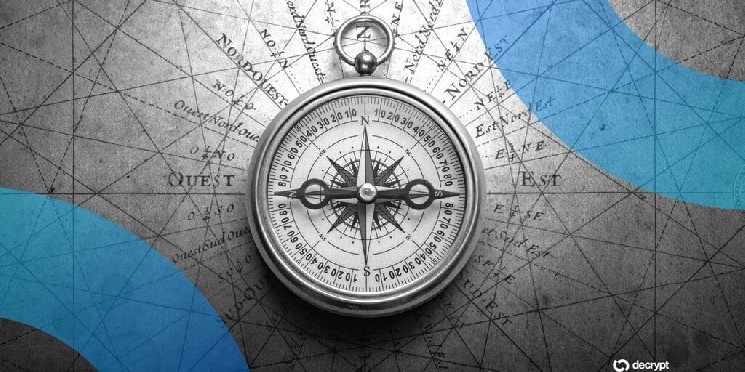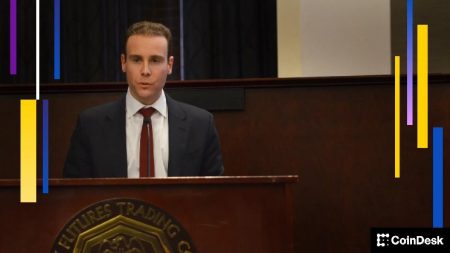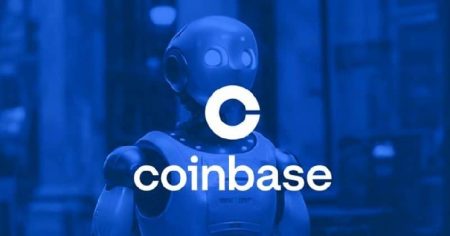OpenLedger Launches SenseMap: A Decentralized Alternative to Traditional Mapping Services
Community-Owned Mapping Network Aims to Challenge Industry Giants Through Blockchain Verification and Real-Time Data
In an era where digital mapping services have become essential tools for navigation and local information, blockchain infrastructure firm OpenLedger is introducing a novel approach to how we interact with geographic data. The company recently announced the addition of SenseMap to its ecosystem—a decentralized mapping network that leverages community contributions and blockchain technology to create a transparent, collectively-owned alternative to traditional mapping platforms like Google Maps.
SenseMap enables users to contribute real-time information about locations, including safety conditions, crowd density, noise levels, and accessibility details—all verified on-chain through OpenLedger’s blockchain infrastructure. This community-driven approach aims to address a significant gap in conventional mapping services by focusing on dynamic, contextual information rather than static geographic data alone.
“In places traditional maps overlook, local contributors can fill the gaps by sharing real-time context—roads, crowd density, safety, or accessibility details,” explained Ram Kumar, a core contributor at OpenLedger, in an interview with Decrypt. This approach particularly benefits areas that may be underserved by commercial mapping operations, including developing regions, disaster zones, or rapidly changing urban environments where centralized data collection efforts often lag behind real-world conditions.
Blockchain Verification Ensures Data Integrity in Open System
A primary concern with any open contribution system is data quality and reliability. SenseMap addresses this challenge through a sophisticated on-chain verification system that ties each submission to a verified blockchain identity. Contributions undergo review by community validators who earn reputation over time based on the accuracy and value of their work.
The platform implements multiple safeguards to maintain data integrity. “Accuracy is maintained through on-chain reputation, staking, and validator review,” Kumar noted. “Spamming isn’t just discouraged, it’s economically unsustainable.” This creates a self-regulating ecosystem where reliable contributors gain greater influence, while those submitting inaccurate or misleading information face penalties that diminish their standing in the network.
OpenLedger’s Proof of Attribution protocol serves as the technological foundation for this verification system. The protocol creates an immutable record of data provenance, documenting who created each contribution, when it was submitted, and how it’s subsequently utilized in downstream applications and AI models. This transparent attribution chain ensures accountability while creating economic incentives for quality contributions.
Challenging the Mapping Status Quo
The launch of SenseMap comes at a time when mapping services represent a significant revenue stream for tech giants. Alphabet, Google’s parent company, reported $82.5 billion in Google Services revenue for Q2 2025, a substantial increase from the previous year’s $73.9 billion. While Google doesn’t disclose specific revenue figures for Maps, analysts have long recognized its commercial importance.
As early as 2019, Morgan Stanley analyst Brian Nowak projected that Google Maps could generate approximately $4.8 billion annually. More recent industry reports suggest the platform’s advertising revenue was on track to reach $11 billion by 2023, highlighting the considerable economic stakes in digital mapping services.
SenseMap’s decentralized model presents a fundamentally different approach to this market. Rather than monetizing user attention through advertising or collecting data for corporate purposes, the platform distributes value back to contributors and validators who maintain the network. This aligns with broader movements toward data ownership and digital commons in the technology sector.
Scaling Trust in Decentralized Networks
A common criticism of decentralized systems is their ability to maintain quality as they grow. However, OpenLedger contends that SenseMap’s accuracy actually improves with scale rather than deteriorates—a counterintuitive claim that rests on its reputation-based validation mechanisms.
“As the network scales, trust is maintained through a reputation-based validation system,” Kumar explained. “The more consistent and reliable a contributor’s data, the higher their validator weight.” This creates a virtuous cycle where trusted contributors gain more influence, further reinforcing data quality standards across the platform.
This perspective is echoed by others working in decentralized physical infrastructure. Arie Trouw, co-founder and CEO of XYO, a decentralized physical infrastructure network, told Decrypt that “Trust comes from reproducibility.” When multiple independent nodes reach the same conclusions through cryptographic verification, consensus emerges naturally without requiring central control.
The Future of Collaborative Mapping
SenseMap represents part of a broader shift toward decentralized alternatives to established digital services. By combining blockchain verification with community contributions, the platform aims to create a more responsive, accurate, and inclusive mapping resource that evolves in real-time based on conditions on the ground.
The approach particularly excels in scenarios where traditional mapping services struggle to maintain current information. During natural disasters, public events, or rapid urban development, centralized data collection methods often cannot keep pace with changing conditions. SenseMap’s distributed model enables those with firsthand knowledge to update information immediately, potentially providing crucial details during time-sensitive situations.
As digital mapping continues to influence how people navigate and understand the world around them, alternatives like SenseMap challenge the assumption that mapping must remain the domain of large technology companies. By redistributing both the creation and ownership of geographic information, decentralized mapping networks could reshape not just how we find our way, but who benefits from the digital infrastructure that increasingly guides our movements through physical space.
Whether OpenLedger’s vision for community-owned mapping can successfully compete with established services remains to be seen. However, SenseMap demonstrates how blockchain technology can be applied to create more transparent, accountable, and collaborative alternatives to centralized digital services—potentially transforming mapping from a proprietary resource into a genuine digital commons built and maintained by the communities it serves.









![Standard Chartered Cuts Bitcoin and Ethereum Forecasts, Predicts Bottom by [Date] at $[Price]](https://commstrader.com/wp-content/uploads/2026/02/3f2a2e40b5435ea86ade84c25b7ee76c02e7fe3c-450x300.jpg)





